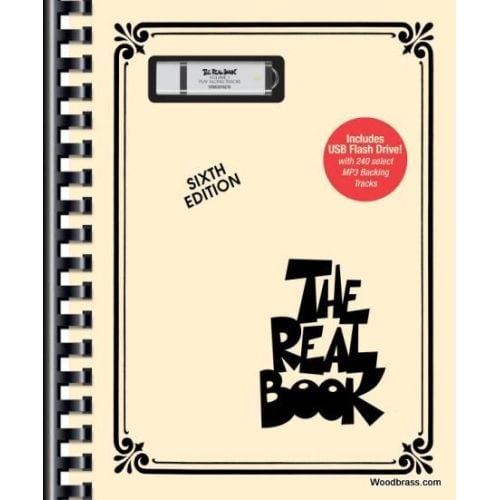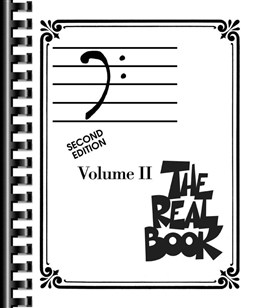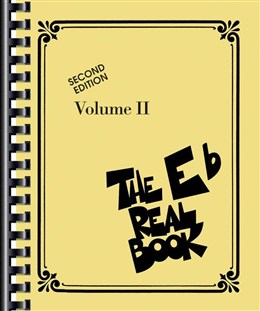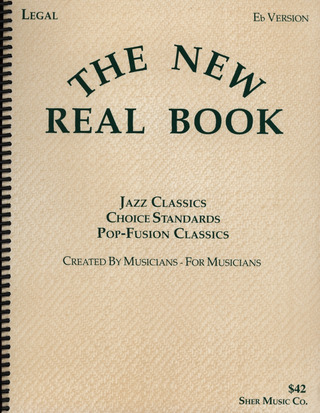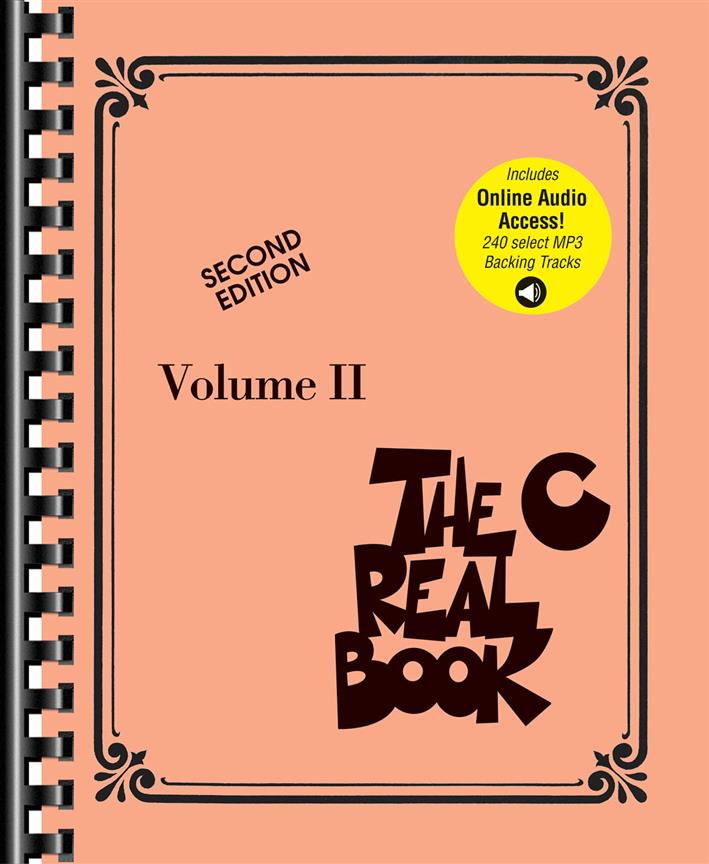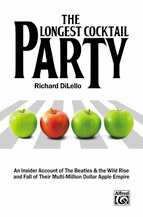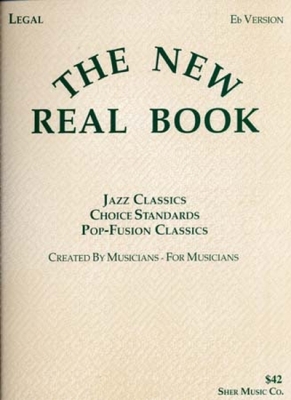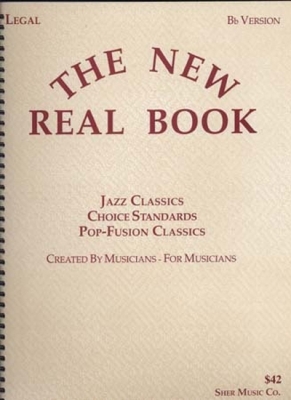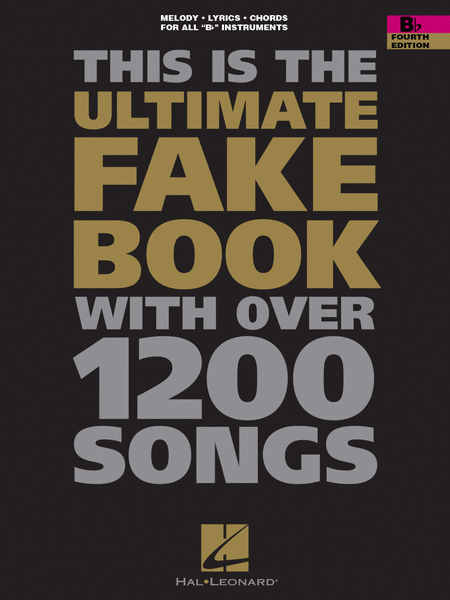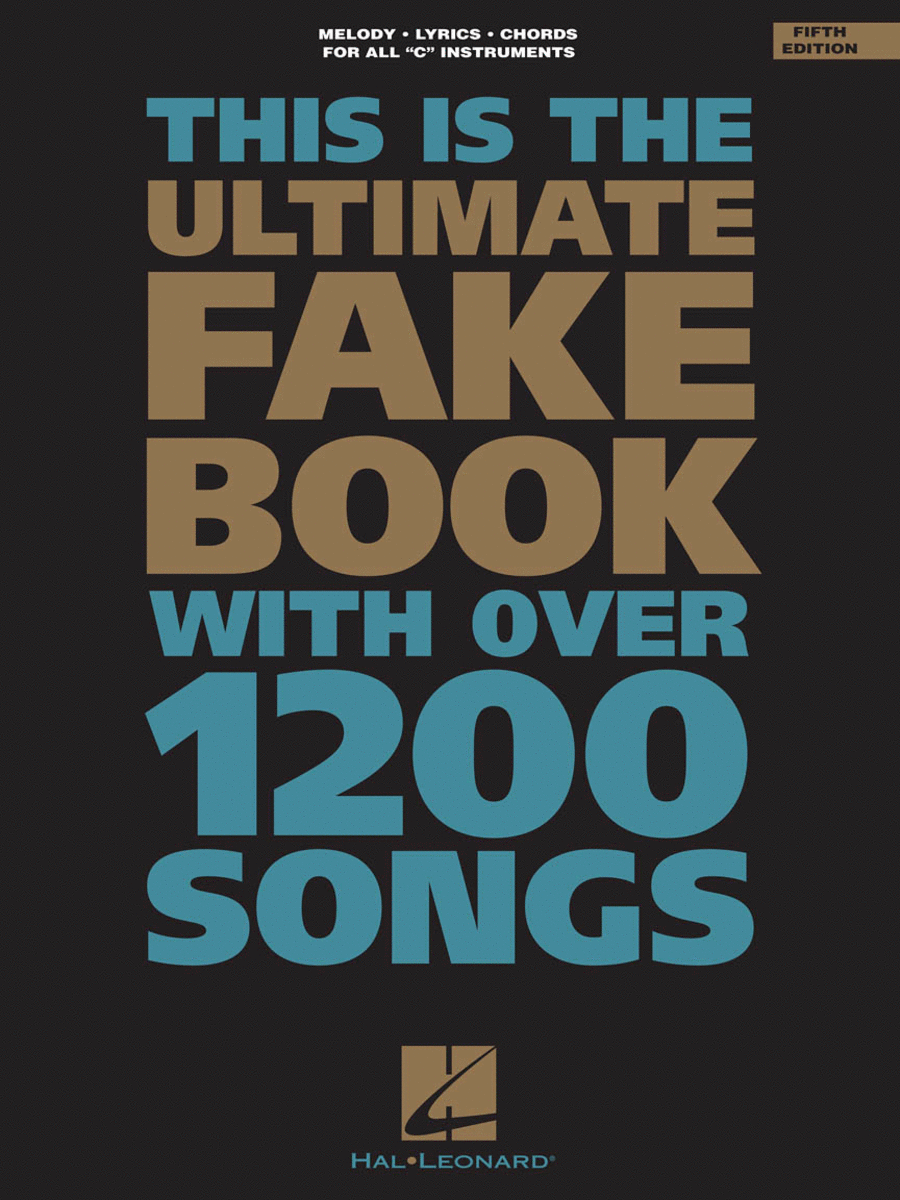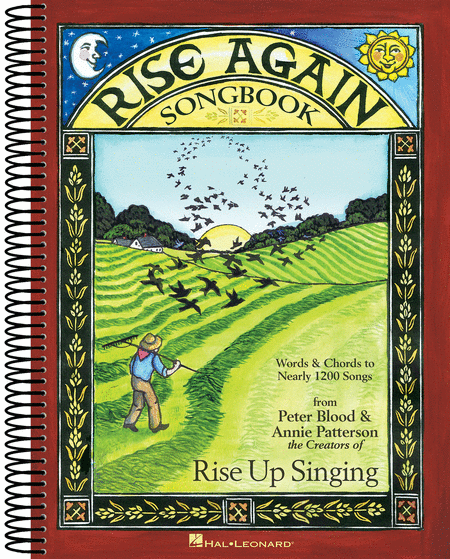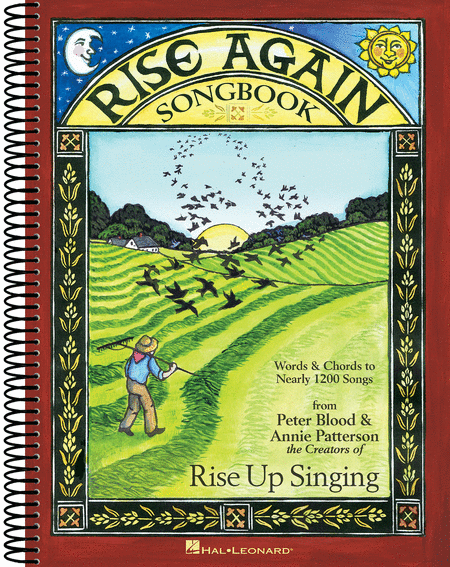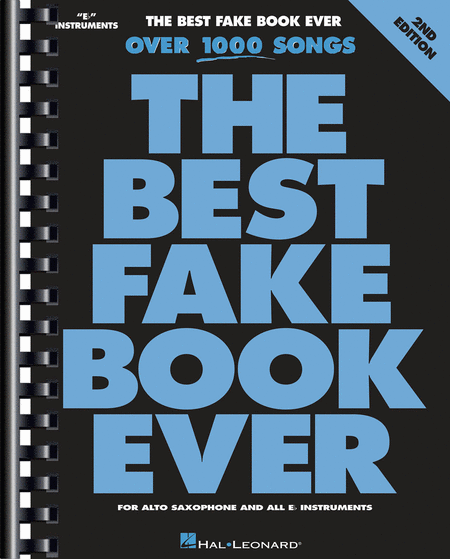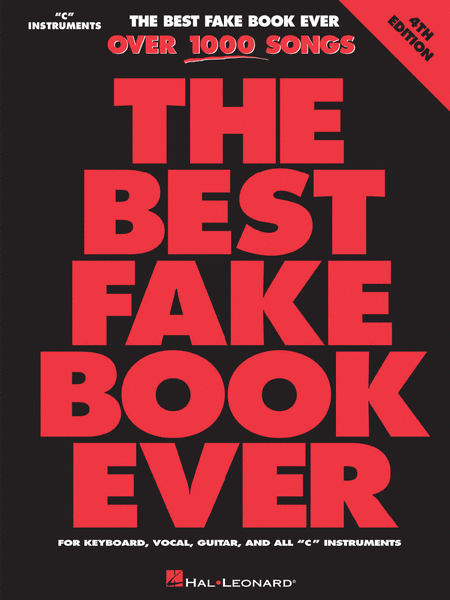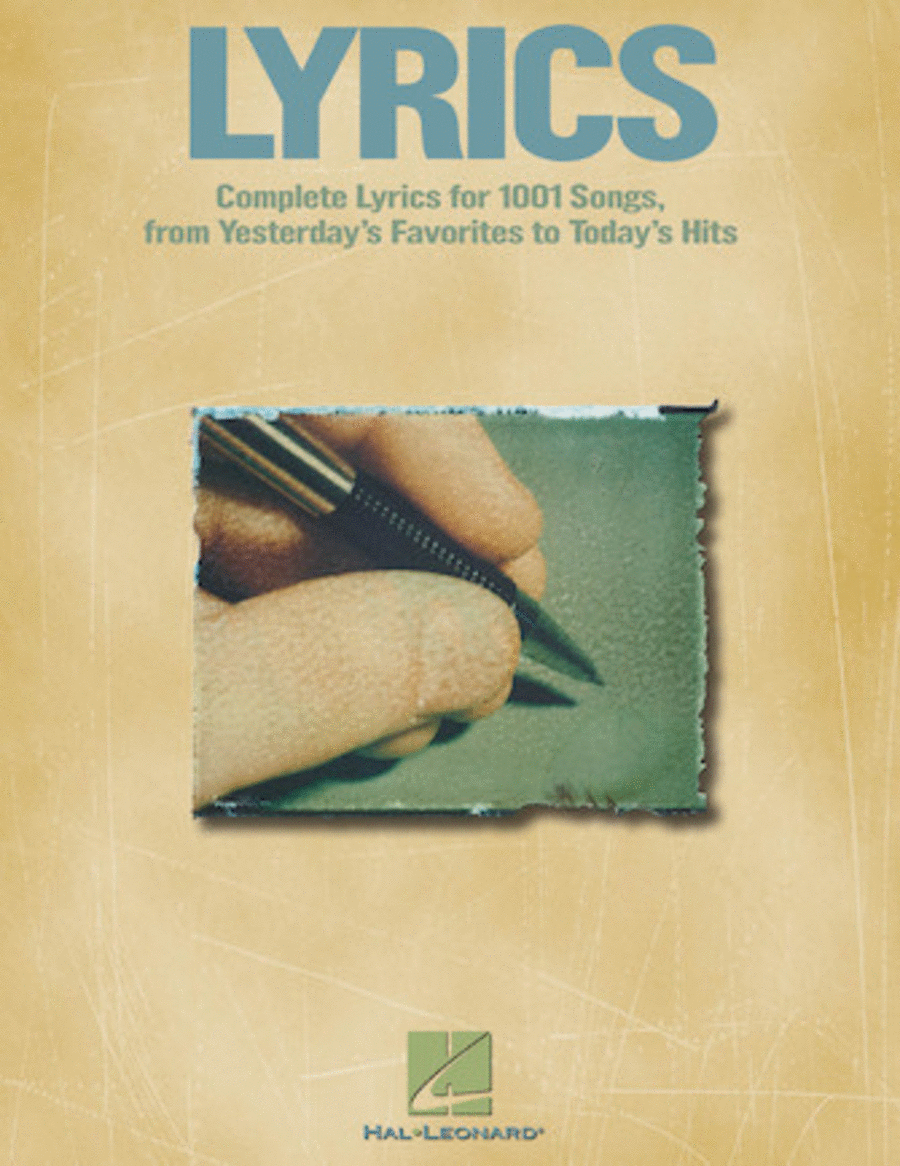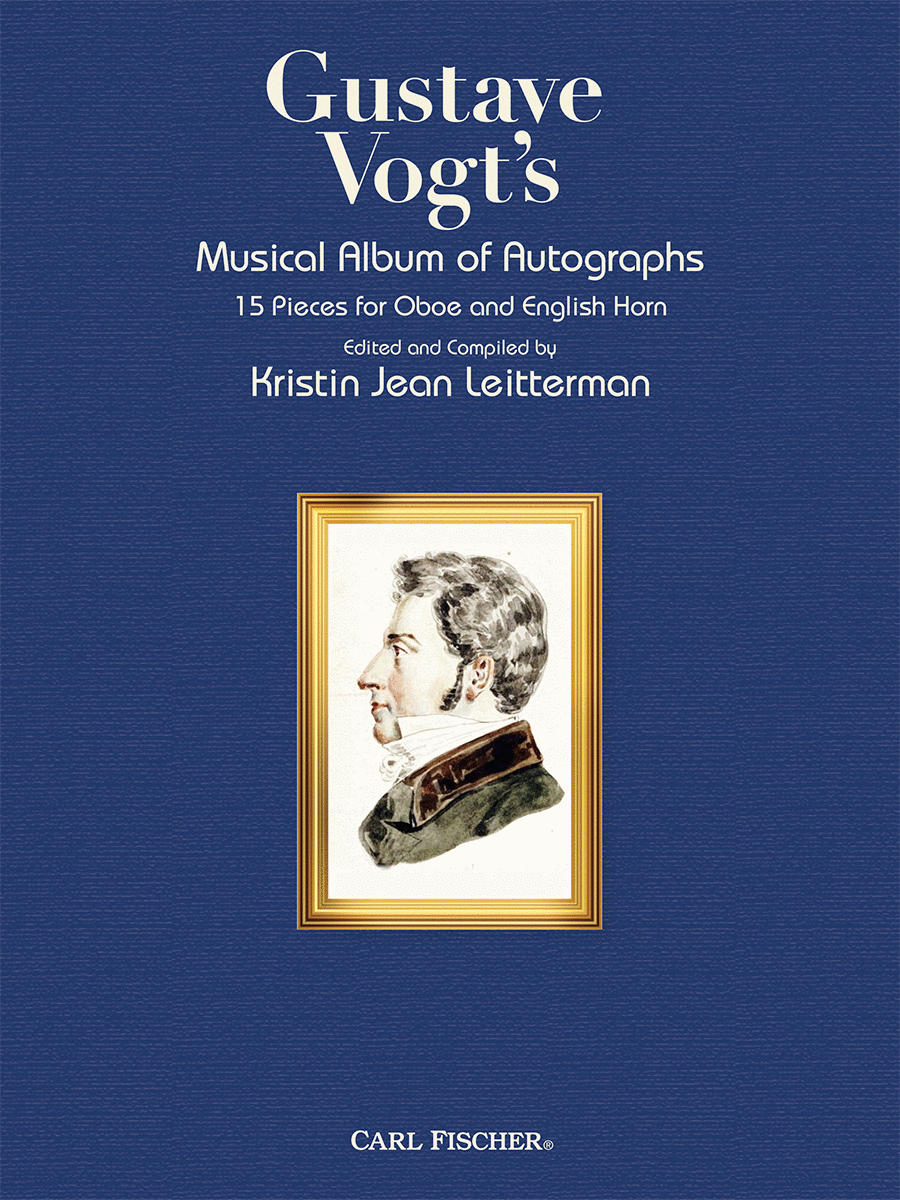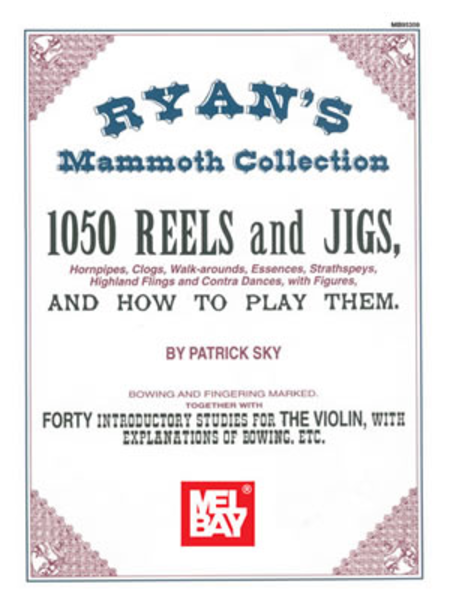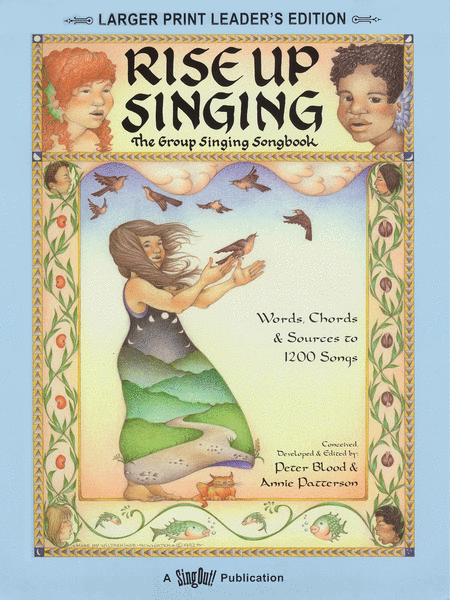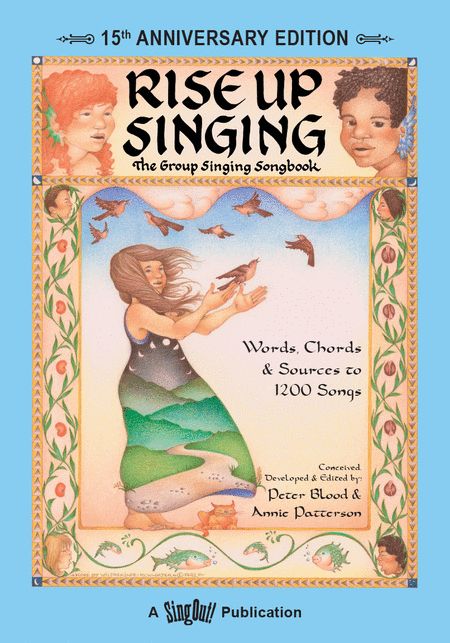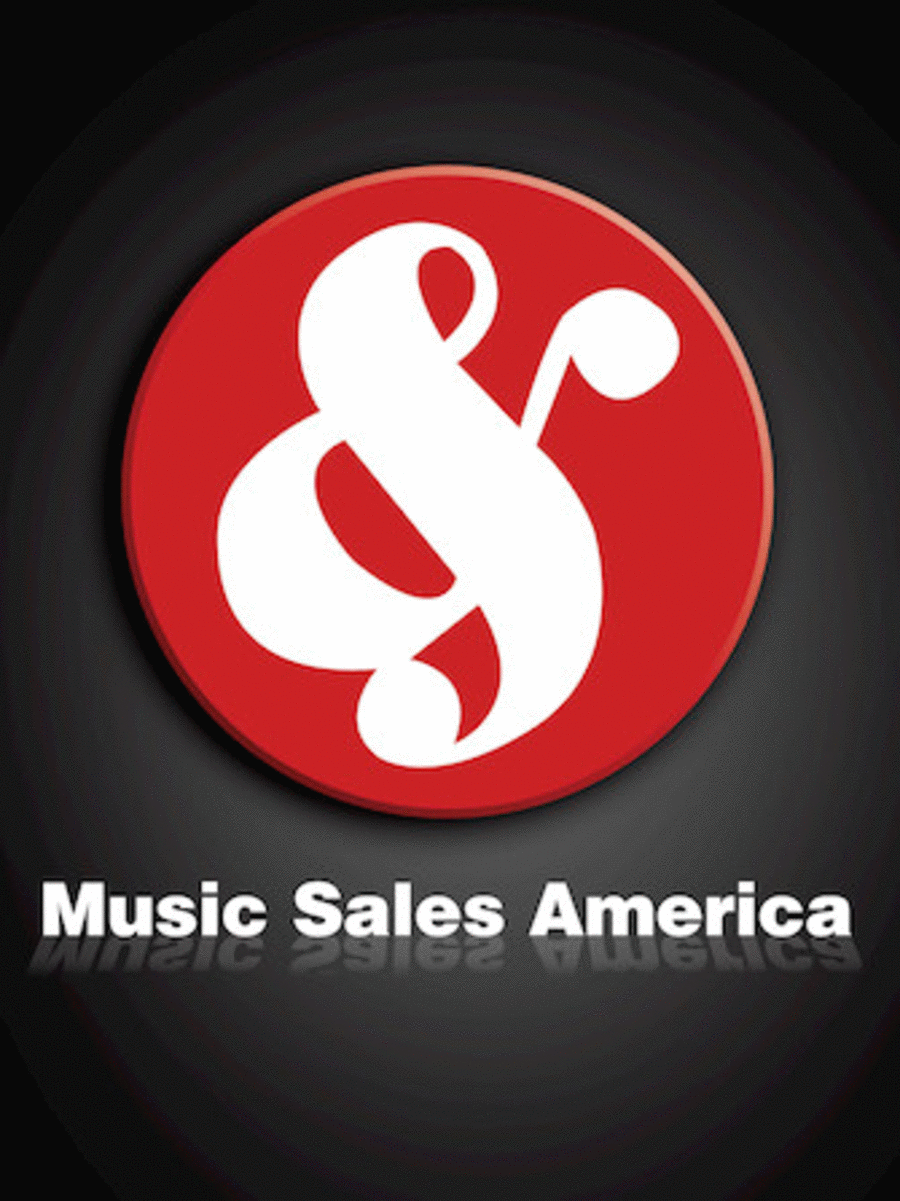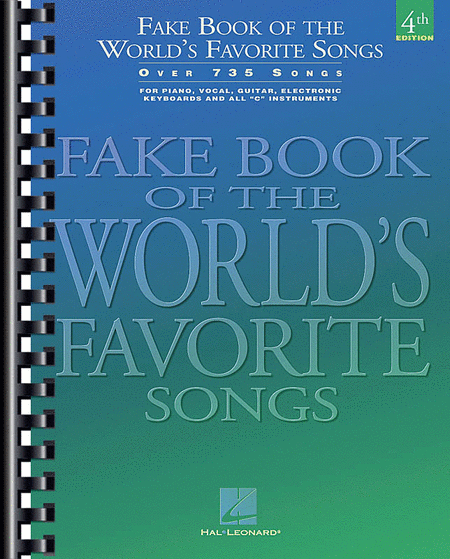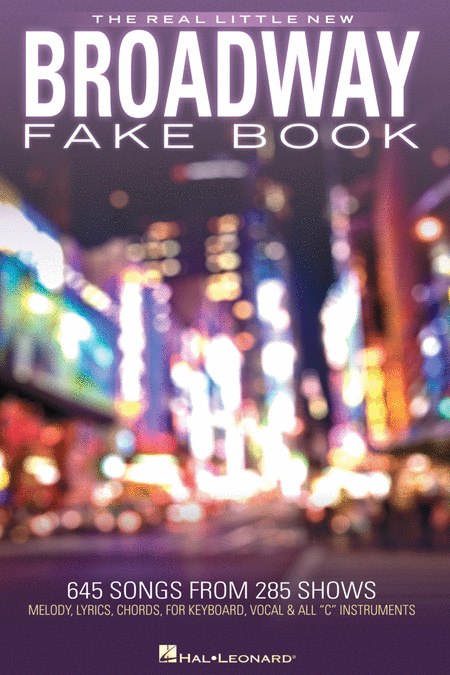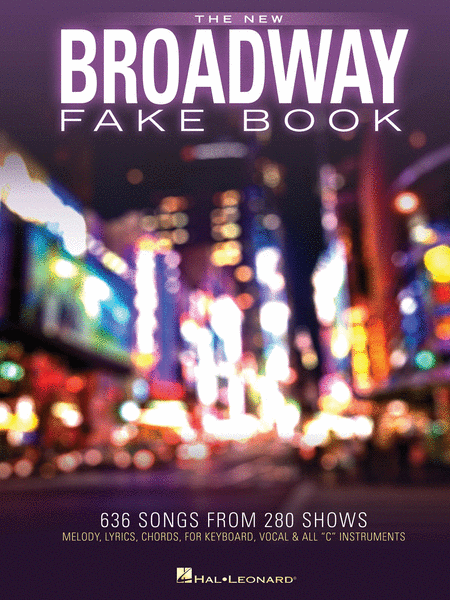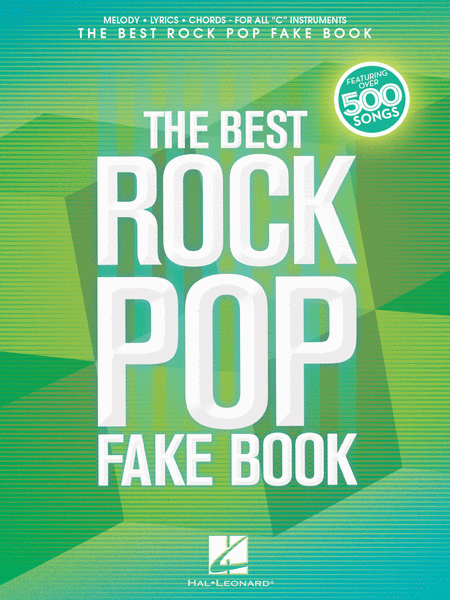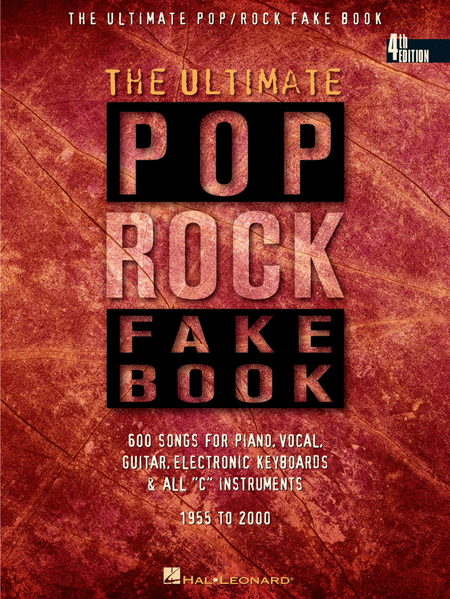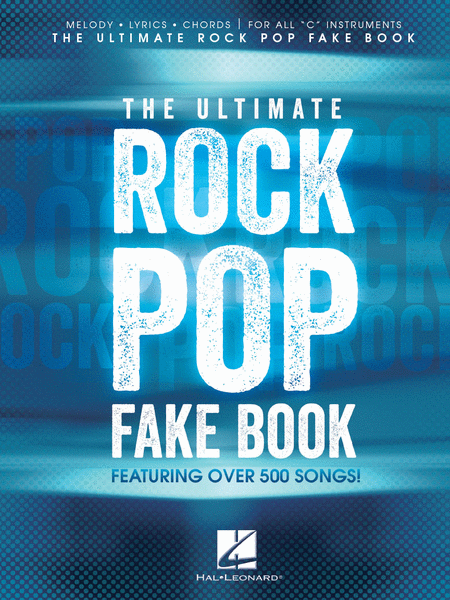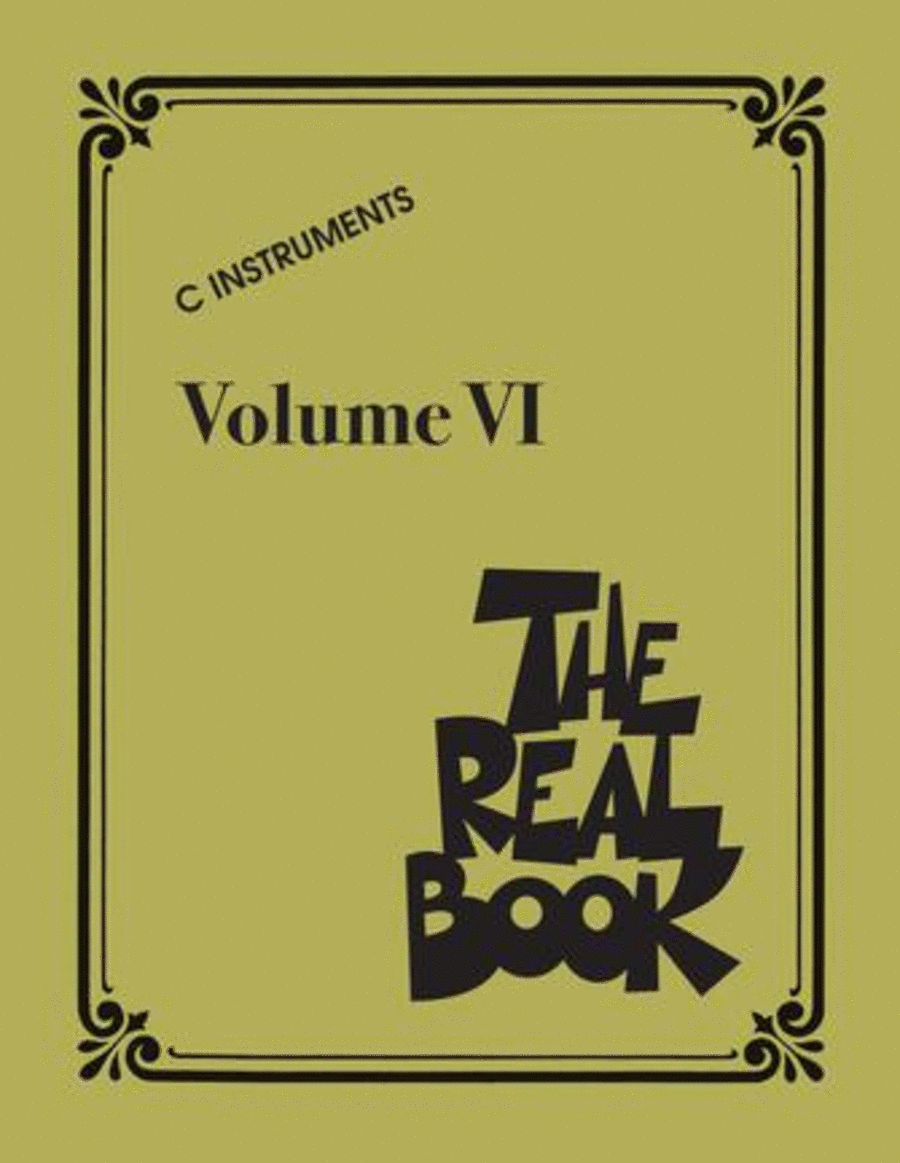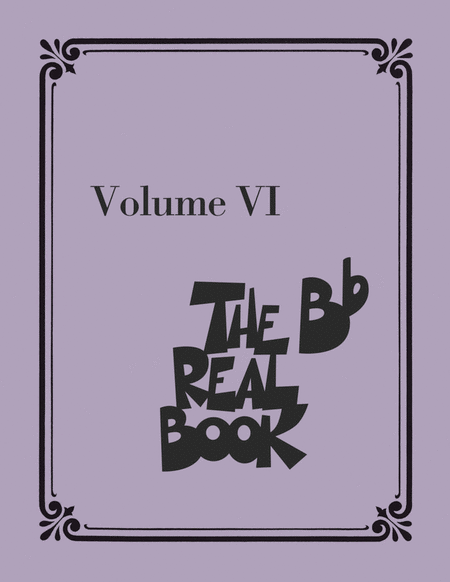|
| 1001 All-Time Hit Songs
Ligne De Mélodie, (Paroles) et
Accords [Partition]
Amsco Wise Publications
Third edition of the world's biggest songbook. This is a vast bumper collection,...(+)
Third edition of the world's biggest songbook. This is a vast bumper collection, perfect for buskers, of 1001 all-time hit songs.Whatever your taste, there's guaranteed to be tonnes of songs you'll want to play, this book will last you years!Inside the spiral bound cover you will find a generous selection of hit songs, golden standards, jazz and blues numbers, classical pieces, hymns, gospel songs, stage, film and musical music! Arranged here in Melody line arrangements for Piano, Organ, Electronic Keyboards, Guitar and all C instruments, complete with lyrics and chord symbols. / Ligne Mélodique, Paroles Et Accords (Avec Grilles D'Accords)
Délais: 2-5 jours - En Stock Fournisseur | | |
| The Real Book Play Along
Vol.1 6th Edition C
Instruments (livre + Cle
Usb)
Instruments en Do [Fake Book]
Hal Leonard
The Real Book you know and love has now been updated to include backing tracks f...(+)
The Real Book you know and love has now been updated to include backing tracks for 240 songs on one convenient USB flash drive stick! The play-along CDs alone are worth $100 so this is an amazing package price! The Real Books are the best-selling jazz books of all time. Since the 1970s, musicians have trusted these volumes to get them through every gig, night after night. The problem is that the books were illegally produced and distributed without any reqard to copyright law or royalties paide to the composers who created these musical masterpieces. Hal Leonard is very proud to present the first legitimate and legal editions of these books ever produced. You won't even notice the difference, other than that all of the notorious errors have been fixed! (I Love You) For Sentimental Reasons [Best, William] [Watson, Deek] (The Old Man From) The Old Country [Adderley, Nat] [Lewis, Curtis, R.] 500 Miles High [Corea, Chick] [Potter, Neville] 502 Blues [Rowles, James] A Child Is Born [Jones, Thad] A Fine Romance [Kern, Jerome] [Fields, Dorothy] A Man And A Woman (Un Homme Et Une Femme) [Lai, Francis] [Barouh, Pierre] [Keller, Jerry] A Night In Tunisia [Gillespie, John 'Dizzy'] [Paparelli, Frank] A String Of Pearls [Grey, Jerry] A Sunday Kind Of Love [Belle, Barbara] [Prima, Louis] [Leonard, Anita] [Rhodes, Stan] African Flower (Petite Fleur Africaine) [Ellington, Duke] Afro Blue [Santamaria, Mongo] Afternoon In Paris [Lewis, John] Água De Beber (Water To Drink) [Jobim, Antonio Carlos] [Gimbel, Norman] [De Moraes, Vinicius] Airegin [Rollins, Sonny] Alfie [Bacarach, Burt] [David, Hal] Alice In Wonderland [Fain, Sammy] [Hilliard, Bob] All Blues [Davis, Miles] All By Myself [Berlin, Irving] All Of Me [Simons, Seymour] [Marks, Gerald] All Of You [Porter, Cole] All The Things You Are [Kern, Jerome] [Hammerstein II, Oscar] Alright, Okay, You Win [Watts, Mayme] Always [Berlin, Irving] Ana Maria [Shorter, Wayne] Angel Eyes [Dennis, Matt] [Brent, Earl] Anthropology [Parker, Charlie] [Gillespie, Dizzy] Apple Honey [Herman, Woody] April In Paris [Duke, Vernon] [Harburg, E. Y.] April Joy [Metheny, Pat] Arise, Her Eyes [Swallow, Steve] Armageddon [Shorter, Wayne] Au Privave [Parker, Charlie] Autumn In New York [Duke, Vernon] Autumn Leaves [Kosma, Joseph] [Mercer, Johnny] [Prevert, Jacques] Beautiful Love [Young, Victor] [King, Wayne] [Van Alstyne, Egbert] [Gillespie, Haven] Beauty And The Beast [Shorter, Wayne] Bessie's Blues [Coltrane, John] Bewitched [Rodgers, Richard] [Hart, Lorenz] Big Nick [Coltrane, Nick] Black Coffee [Webster, Paul Francis] [Burke, Sonny] Black Diamond [Sealey, Milton] Black Narcissus [Henderson, Joe] Black Nile [Shorter, Wayne] Black Orpheus [Bonfa, Luiz] Blue Bossa [Dorham, Kenny] Blue In Green [Davis, Miles] Blue Monk [Monk, Thelonious] Blue Train (Blue Trane) [Coltrane, John] Blues For Alice [Parker, Charlie] Bluesette [Thielemans, Jean] [Gimbel, Norman] Body And Soul [Green, John] [Heyman, Edward] [Sour, Robert] [Eyton, Frank] Boplicity (Be Bop Lives) [Davis, Miles] [Evans, Gil] Bright Size Life [Metheny, Pat] Broad Way Blues [Coleman, Ornette] Broadway [Byrd, Bill] [McRae, Teddy] [Woode, Henri] But Beautiful [Van Heusen, Jimmy] [Burke, Johnny] Butterfly [Hancock, Herbie] [Maupin, Bennie] Byrd Like [Hubbard, Freddie] Call Me [Hatch, Tony] Call Me Irresponsible [Van Heusen, James] [Cahn, Sammy] Can't Help Lovin' Dat Man [Kern, Jerome] [Hammerstein II, Oscar] Captain Marvel [Corea, Chick] Central Park West [Coltrane, John] Ceora [Morgan, Lee] C'est Si Bon [Betti, Henri] [Seelen, Jerry] [Hornez, Andre] Chega De Saudade (No More Blues) [Jobim, Antonio Carlos] [De Moraes, Vinicius] Chelsea Bells [Swallow, Steve] Chelsea Bridge [Strayhorn, Billy] Cherokee (Indian Love Song) [Noble, Ray] Cherry Pink And Apple Blossom White [Louiguy] [Larue, Jacques] [David, Mack] Chippie [Coleman, Ornette] Chitlins Con Carne [Burrell, Kenny] Come Sunday [Ellington, Duke] Como En Vietnam [Swallow, Steve] Con Alma [Gillespie, John 'Dizzy'] Conception [Shearing, George] Confirmation [Parker, Charlie] Contemplation [Tyner, McCoy] Coral [Jarrett, Keith] Cotton Tail [Ellington, Duke] Could It Be You [Porter, Cole] Countdown [Coltrane, John] Crescent [Coltrane, John] Crystal Silence [Corea, Chick] D Natural Blues [Montgomery, John L. (Wes)] Daahoud [Brown, Clifford] Dancing On The Ceiling [Rodgers, Richard] [Hart, Lorenz] Darn That Dream [Van Heusen, Jimmy] [DeLange, Eddie] Day Waves [Corea, Chick] [Potter, Neville] Days And Nights Waiting [Jarrett, Keith] Dear Old Stockholm [Varmeland] Dearly Beloved [Kern, Jerome] [Mercer, Johnny] Dedicated To You [Cahn, Sammy] [Chaplin, Saul] [Hyzaret] Deluge [Shorter, Wayne] Desafinado [Jobim, Antonio, Carlos] [Mendonca, Newton] Desert Air [Corea, Chick] Detour Ahead [Ellis, Herb] [Frigo, John] [Carter, Lou] Dexterity [Parker, Charlie] Dizzy Atmosphere [Gillespie, John 'Dizzy'] Django [Lewis, John] Doin' The Pig [Swallow, Steve] Dolores [Shorter, Wayne] Dolphin Dance [Hancock, Herbie] Domino Biscuit [Swallow, Steve] Donna Lee [Parker, Charlie] Don't Blame Me [McHugh, Jimmy] [Fields, Dorothy] Don't Get Around Much Anymore [Ellington, Duke] [Russell, Bob] Dream A Little Dream Of Me [Schwandt, Wilbur] [Andree, Fabian] [Kahn, Gus] Dreamsville [Mancini, Henry] [Livingston, Jay] [Evans, Ray] E.S.P. [Shorter, Wayne] Easter Parade [Berlin, Irving] Easy Living [Robin, Leo] [Rainger, Ralph] Easy To Love (You'd Be So Easy To Love) [Porter, Cole] Ecclusiastics [Mingus, Charles] Eighty One [Davis, Miles] [Carter, Ronald] El Gaucho [Shorter, Wayne] Epistrophy [Monk, Thelonious] [Clarke, Kenny] Equinox [Coltrane, John] Equipoise [Cowell, Stanley] Fall [Shorter, Wayne] Falling Grace [Swallow, Steve] Falling In Love With Love [Rodgers, Richard] [Hart, Lorenz] Fee-Fi-Fo-Fum [Shorter, Wayne] Follow Your Heart [McLaughlin, John] Footprints [Shorter, Wayne] For All We Know [Coots, Fred, J.] [Lewis, Sam M.] For Heaven's Sake [Meyer, Don] [Bretton, Elise] [Edwards, Sherman] Forest Flower [Lloyd, Charles] Four [Davis, Miles] Four On Six [Montgomery, John L. (Wes)] Freddie Freeloader [Davis, Miles] Freedom Jazz Dance [Harris, Eddie] Full House [Montgomery, John L. (Wes)] Gee Baby, Ain't I Good To You [Redman, John] [Razaf, Andy] Gemini [Heath, Jimmy] Giant Steps [Coltrane, John] Gloria's Step [Le Faro, Scott] God Bless' The Child [Herzog Jnr, Arthur] [Holiday, Billie] Golden Lady [Wonder, Stevie] Good Evening Mr. And Mrs. America [Guerin, John] Grand Central [Coltrane, John] Groovin' High [Gillespie, John 'Dizzy'] Grow Your Own [Jarrett, Keith] Guilty [Kahn, Gus] [Whiting, Richard] [Akst, Harry] Gypsy In My Soul [Boland, Clay] [Jaffe, Moe] Half Nelson [Davis, Miles] Have You Met Miss Jones' [Rodgers, Richard] [Hart, Lorenz] Heaven [Ellington, Duke] Heebie Jeebies [Atkins, Boyd] Hello, Young Lovers [Rodgers, Richard] [Hammerstein II, Oscar] Here's That Rainy Day [Van Heusen, Jimmy] [Burke, Johnny] Hot Toddy [Hendler, Herb] [Flanagan, Ralph] House Of Jade [Shorter, Wayne] How High The Moon [Lewis, Morgan] [Hamilton, Nancy] How Insensitive (Insensatez) [Jobim, Antonio, Carlos] [De Moraes, Vinicius] [Gimbel, Norman] How My Heart Sings [Zindars, Earl] [Zindars, Anne] Hullo Bolinas [Swallow, Steve] I Can't Get Started With You [Duke, Vernon] [Gershwin, Ira] I Can't Give You Anything But Love [McHugh, Jimmy] [Fields, Dorothy] I Could Write A Book [Rodgers, Richard] [Hart, Lorenz] I Got It Bad And That Ain't Good [Ellington, Duke] [Webster, Paul Francis] I Let A Song Go Out Of My Heart [Ellington, Duke] [Nemo, Henry] [Redmond, John] [Mills, Irving] I Love Paris [Porter, Cole] I Love You [Porter, Cole] I Mean You [Monk, Thelonious] [Hawkins, Coleman] I Remember Clifford [Golson, Benny] I Should Care [Cahn, Sammy] [Stordahl, Axel] [Weston, Paul] I Wish I Knew How It Would Feel To Be Free [Taylor, Billy] Icarus [Twoner, Ralph N.] If You Never Come To Me (Inutil Paisagem) [Jobim, Antonio Carlos] [De Oliveira, Aloysio] [Gilbert, Ray] I'll Never Smile Again [Lowe, Ruth] I'll Remember April [Johnston, Pat] [Raye, Don] [De Paul, Gene] I'm All Smiles [Leonard, Michael] [Martin, Herbert] I'm Beginning To See The Light [George, Dan] [Hodges, Johnny] [Ellington, Duke] [James, Harry] I'm Your Pal [Swallow, Steve] Impressions [Coltrane, John] In A Mellow Tone [Ellington, Duke] In A Sentimental Mood [Ellington, Duke] In The Mood [Garland, Joe] In The Wee Small Hours Of The Morning [Mann, David] [Hilliard, Bob] In Your Quiet Place [Jarrett, Keith] Indian Lady [Ellis, Don] Inner Urge [Henderson, Joe] Interplay [Evans, Bill] Invitation [Kaper, Bronislam] [Webster, Paul Francis] Iris [Shorter, Wayne] Is You Is, Or Is You Ain't (Ma' Baby) Isn't It Romantic' [Rodgers, Richard] [Hart, Lorenz] Isotope [Henderson, Joe] Israel [Carisi, John] It Don't Mean A Thing (If It Ain't Got That Swing) [Ellington, Duke] [Mills, Irving] It's Easy To Remember [Rodgers, Richard] [Hart, Lorenz] Jelly Roll [Mingus, Charles] Jordu [Jordan, Duke] Journey To Recife [Evans, Richard] [Gimbel, Norman] Joy Spring [Brown, Clifford] Juju [Shorter, Wayne] Jump Monk [Mingus, Charles] June In January [Robin, Leo] [Rainger, Ralph] Just One More Chance [Johnston, Arthur] [Coslow, Sam] Kelo [Johnson, J. J.] Lady Bird [Dameron, Tadd] Lady Sings The Blues [Nichols, Herbert] [Holiday, Billie] Lament [Johnson, J.J] Las Vegas Tango [Evans, Gil] Lazy Bird [Coltrane, John] Lazy River [Carmichael, Hoagy] Like Someone In Love [Van Heusen, Jimmy] [Burke, Johnny] Limehouse Blues [Braham, Philip] [Furber, Douglas] Lines And Spaces [Lovano, Joe] Litha [Corea, Chick] Little Boat (O Barquinho) [Menescal, Roberto] [Boscoli, Ronaldo] [Kaye, Buddy] Little Waltz [Carter, Ron] Long Ago (And Far Away) [Kern, Jerome] [Gershwin, Ira] Lonnie's Lament [Coltrane, John] Look To The Sky [Jobim, Antonio Carlos] Love Is The Sweetest Thing [Noble, Ray] Lucky Southern [Jarrett, Keith] Lullaby Of Birdland [Shearing, George] [Weiss, George David] Lush Life [Strayhorn, Billy] Mahjong [Shorter, Wayne] Maiden Voyage [Hancock, Herbie] Man In The Green Shirt [Zawinul, Joe] Meditation (Meditacao) [Jobim, Antonio Carlos] [Mendonca, Newton] [Gimbel, Norman] Memories Of Tomorrow [Jarrett, Keith] Michelle [Lennon, John] [McCartney, Paul] Midnight Mood [Zawinul, Josef] Midwestern Nights Dream [Metheny, Pat] Milano [Lewis, John] Minority [Gryce, Gigi] Miss Ann [Dolphy, Eric] Missouri Uncompromised [Metheny, Pat] Misty [Garner, Erroll] Miyako [Shorter, Wayne] Moment's Notice [Coltrane, John] Mood Indigo [Ellington, Duke] [Mills, Irving] [Bigard, Albany] Moonchild [Jarrett, Keith] Mr. P.C. [Coltrane, John] My Buddy [Donaldson, Walter] [Kahn, Gus] My Favorite Things [Rodgers, Richard] [Hammerstein II, Oscar] My Foolish Heart [Young, Victor] [Washington, Ned] My Funny Valentine [Rodgers, Richard] [Hart, Lorenz] My One And Only Love [Wood, Guy] [Mellin, Robert] My Romance [Rodgers, Richard] [Hart, Lorenz] My Shining Hour [Arlen, Harold] [Mercer, Johnny] My Ship [Weill, Kurt] [Gershwin, Ira] My Way [Revaux, Jacques] [Francois, Claude] [Anka, Paul] [Thibaud, Gilles] Mysterious Traveller [Shorter, Wayne] Naima (Niema) [Coltrane, John] Nardis [Davis, Miles] Nefertiti [Shorter, Wayne] Never Will I Marry [Loesser, Frank] Nica's Dream [Silver, Horace] Night Dreamer [Shorter, Wayne] Night Train [Forrest, Jimmy] [Washington, Oscar] [Simpkins, Lewis C.] Nobody Knows You When You're Down And Out [Cox, Jimmie] Nostalgia In Times Square [Mingus, Charles] Nuages [Reinhardt, Django] [Larue, Jacques] Oleo [Rollins, Sonny] Oliloqui Valley [Hancock, Herbie] Once I Loved (Amor Em Paz) (Love In Peace) [Jobim, Antonio Carlos] [De Morales, Vinicius] [Gilbert, Ray] Once In Love With Amy [Loesser, Frank] One Finger Snap [Hancock, Herbie] One Note Samba (Samba De Uma Nota So) [Jobim, Antonio Carlos] [Mendonca, Newton] Only Trust Your Heart [Carter, Benny] [Cahn, Sammy] Orbits [Shorter, Wayne] Ornithology [Parker, Charlie] [Harris, Bennie] Out Of Nowhere [Green, Johnny] [Heyman, Edward] P.S. I Love You [Jenkins, Gordon] [Mercer, Johnny] Paper Doll [Black, Johnny S.] Passion Dance [Tyner, Mccoy] Passion Flower [Strayhorn, Billy] [Raskin, Milton] Peace [Silver, Horace] Peggy's Blue Skylight [Mingus, Charles] Pent Up House [Rollins, Sonny] Penthouse Serenade [Jason, Will] [Burton, Val] Peri's Scope [Evans, Bill] Pfrancing (No Blues) [Davis, Miles] Pinocchio [Shorter, Wayne] Pithecanthropus Erectus [Mingus, Charles] Poem For #15 (The Saga Of Harrison Crabfeathers) [Kuhn, Steve] Portsmouth Figurations [Swallow, Steve] Prelude To A Kiss [Ellington, Duke] [Gordon, Irving] [Mills, Irving] Prince Of Darkness [Shorter, Wayne] Pussy Cat Dues [Mingus, Charles] Quiet Nights Of Quiet Stars (Corcovado) [Jobim, Antonio Carlos] [Lees, Gene] Quiet Now [Zeitlin, Denny] Recorda Me [Henderson, Joe] Red Clay [Hubbard, Freddie] Reflections [Monk, Thelonious] Reincarnation Of A Lovebird [Mingus, Charles] Ring Dem Bells [Ellington, Duke] [Mills, Irving] Road Song [Montgomery, John L. (Wes)] 'Round Midnight [Monk, Thelonious] [Williams, Cootie] [Hanighen, Bernie] Ruby, My Dear [Monk, Thelonious] Satin Doll [Ellington, Duke] Scotch And Soda [Guard, Dave] Scrapple From The Apple [Parker, Charlie] Sea Journey [Corea, Chick] [Potter, Neville] Seven Come Eleven [Goodman, Benny] [Christian, Charlie] Seven Steps To Heaven [Davis, Miles] [Feldman, Victor] Sidewinder [Morgan, Lee] Silver Hollow [DeJohnette, Jack] Sirabhorn [Metheny, Pat] Skating In Central Park [Lewis, John] So Nice (Summer Samba) [Valle, Marcos] [Valle, Paulo Sergio] [Gimbel, Norman] So What [Davis, Miles] Solar [Davis, Miles] Solitude [Ellington, Duke] [De Lange, Eddie] [Mills, Irving] Some Day My Prince Will Come [Churchill, Frank] [Morel, Larry] Some Other Spring [Herzog Jnr, Arthur] [Kitchings, Irene] Some Skunk Funk [Brecker, Randy] Somebody Loves Me [Gershwin, George] [DeSylva, B. G.][MacDonald, Ballard] [Ranaud, Emelia] Sometime Ago [Mihanovich, Sergio] Song For My Father [Silver, Horace] Sophisticated Lady [Ellington, Duke] [Mills, Irving] [Parish, Micthell] Speak No Evil [Shorter, Wayne] Standing On The Corner [Loesser, Frank] Stella By Starlight [Young, Victor] [Washington, Ned] Steps [Corea, Chick] Stolen Moments [Nelson, Oliver] Stompin' At The Savoy [Goodman, Benny] [Sampson, Edgar] [Webb, Chick] Straight No Chaser [Monk, Thelonious] Stuff [Davis, Miles] Sugar [Turrentine, Stanley] Swedish Pastry [Kessel, Barney] Sweet Georgia Bright [Lloyd, Charles] Sweet Henry [Swallow, Steve] [Gregg, Jack] Take Five [Desmond, Paul] Take The 'A' Train [Strayhorn, Billy] Tame Thy Pen [Niles, Richard] Tell Me A Bedtime Story [Hancock, Herbie] Thanks For The Memory [Robin, Leo] [Rainger, Ralph] That's Amoré (That's Love) [Warren, Harry] [Brooks, Jack] The Blue Room [Rodgers, Richard] [Hart, Lorenz] The Girl From Ipanema (Garôta De Ipanema) [Jobim, Antonio Carlos] [Gimbel, Norman] [De Moraes, Vinicius] The Green Mountains [Swallow, Steve] The Inch Worm [Loesser, Frank] The Intrepid Fox [Hubbard, Freddie] The Magician In You [Jarrett, Keith] The Most Beautiful Girl In The World [Rodgers, Richard] [Hart, Lorenz] The Night Has A Thousand Eyes [Brainin, Jerry] [Bernier, Buddy] The Song Is You [Kern, Jerome] [Hammerstein II, Oscar] The Sorcerer [Hancock, Herbie] The Sphinx [Coleman, Ornette] The Star-Crossed Lovers [Ellington, Duke] [Strayhorn, Billy] The Surrey With The Fringe On Top [Rodgers, Richard] [Hammerstein II, Oscar] The World Is Waiting For The Sunrise [Seitz, Ernest] [Lockhart, Eugene] There Is No Greater Love [Jones, Isham] [Symes, Marty] There Will Never Be Another You [Warren, Harry] [Gordon, Mack] There'll Be Some Changes Made [Overstreet, Benton] [Higgins, Billy] They Didn't Believe Me [Kern, Jerome] [Reynolds, Herbert] Think On Me [Cables, George] Thou Swell [Rodgers, Richard] [Hart, Lorenz] Three Flowers [Tyner, McCoy] Time Remembered [Evans, Bill] Tones For Joan's Bones [Corea, Chick] Topsy [Battle, Edgar] [[Durham, Eddie] Tour De Force [Gillespie, John 'Dizzy'] Triste [Jobim, Antonio Carlos] Tune Up [Davis, Miles] Turn Out The Stars [Evans, Bill] [Lees, Gene] Twisted Blues [Montgomery, John, L. (Wes)] Unchain My Heart [Sharp, Bobby] [Powell, Teddy] Uniquity Road [Metheny, Pat] Unity Village [Metheny, Pat] Up Jumped Spring [Hubbard, Freddie] Upper Manhattan Medical Group (UMMG) [Strayhorn, Billy] Valse Hot [Rollins, Sonny] Very Early [Evans, Bill] Virgo [Shorter, Wayne] Wait Till You See Her [Rodgers, Richard] [Hart, Lorenz] Waltz For Debby [Evans, Bill] [Lees, Gene] Wave [Jobim, Antonio Carlos] We'll Be Together Again [Fischer, Carl] [Lane, Frankie] Well You Needn't (It's Over Now) [Monk, Thelonious] [Perro, Mike] West Coast Blues [Montgomery, John L. (Wes)] What Am I Here For' [Ellington, Duke] What Was [Corea, Chick] When I Fall In Love [Young, Victor] [Heyman, Edward] When Sunny Gets Blue [Fischer, Marvin] [Segal, Jack] When You Wish Upon A Star [Harline, Leigh] [Washington, Ned] Whispering [Coburn, Richard] [Schonberger, John] [Rose, Vincent] Wild Flower [Shorter, Wayne] Windows [Corea, Chick] Witch Hunt [Shorter, Wayne] Wives And Lovers (Hey, Little Girl) [Bacharach, Burt] [David, Hal] Woodchopper's Ball [Bishop, Joe] [Herman, Woody] Woodyn' You [Gillespie, Dizzy] Yes And No [Shorter, Wayne] Yesterday [Lennon, John] [McCartney, Paul] Yesterdays [Kern, Jerome] [Harbach, Otto] You Are The Sunshine Of My Life [Wonder, Stevie] You Are Too Beautiful [Rodgers, Richard] [Hart, Lorenz] You Brought A New Kind Of Love To Me [Fain, Sammy] [Kahal, Irving] [Norman, Pierre] You Don't Know What Love Is [Raye, Don] [DePaul, Gene] You Took Advantage Of Me [Rodgers, Richard] [Hart, Lorenz] Young At Heart [Richards, Johnny] [Leigh, Carolyn] You're Nobody 'Til Somebody Loves You [Morgan, Russ] [Stock, Larry] [Cavanaugh, James]
Délais: Sur commande | | |
| New Busker's
Fakebook 1001 All-Time
Hit Songs
[Sheet music] - Facile
Music Sales
The second volume of a thousand and one all-time hit songs ranging from essentia...(+)
The second volume of a thousand and one all-time hit songs ranging from essential standards to the latest pop hits - a must for all singers and musicians. / Chant Et Guitare
Délais: 2-5 jours - En Stock Fournisseur | | |
| The Real Book : Vol.I -
Sixth Edition B Flat
Instruments - Mini
Edition
Instruments en Sib [Fake Book]
Hal Leonard
Le Real Book est une alternative à la pléthore de mal conçus, les volumes ill...(+)
Le Real Book est une alternative à la pléthore de mal conçus, les volumes illisibles, inexactes et mal édités qui abondent sur ??le marché aujourd'hui. Claire et précise, la série Real Book vise à fournir une sélection de musique qui est à la fois facile à lire et agréable à réaliser. Arrangé pour instruments bémol, ce mini édition (5.25 'x 8.5') de The Real Book: volume I contient 400 chansons, dont Hier, Somebody Loves Me, 'Round Midnight, avez You Met Miss Jones? et beaucoup plus des airs bien connus. / Instruments En Sib/Bb
Délais: En Stock | | |
| The Real Book : Vol.II -
Second Edition - Bass
Clef Instruments
Bass Clef Instruments
Hal Leonard
Le Real Book est une alternative à la pléthore de mal conçus, les volumes ill...(+)
Le Real Book est une alternative à la pléthore de mal conçus, les volumes illisibles, inexactes et mal édités qui abondent sur ??le marché aujourd'hui. Claire et précise, la série Real Book vise à fournir une sélection de musique qui est à la fois facile à lire et agréable à réaliser. Arrangé pour instruments en clé de basse, cette édition de The Real Book: Volume II contient 400 chansons, dont Moon River, Georgia On My Mind, Fly Me To The Moon, Oye Como Va et de nombreux airs les plus connus. / Instruments En Clé de Fa
Délais: 2-5 jours - En Stock Fournisseur | | |
| The Real Book : Vol.II -
Second Edition - E Flat
Instruments
Instruments en Mib [Fake Book]
Hal Leonard
Le Real Book est une alternative à la pléthore de mal conçus, les volumes ill...(+)
Le Real Book est une alternative à la pléthore de mal conçus, les volumes illisibles, inexactes et mal édités qui abondent sur ??le marché aujourd'hui. Claire et précise, la série Real Book vise à fournir une sélection de musique qui est à la fois facile à lire et agréable à réaliser. Arrangé pour E instruments plat, cette édition de The Real Book: Volume II contient 400 chansons, dont Moon River, Georgia On My Mind, Fly Me To The Moon, Oye Como Va et de nombreux airs les plus connus. / Instruments En Mib
Délais: En Stock | | |
| Jazz : La Discothèque
Idéale En 25 Albums
Originaux (Coffret 25 CD)
CD [Coffret CDs]
- Record Label: Sony
- Catalog#: 88697 720092
- Country Of Release:...(+)
- Record Label: Sony
- Catalog#: 88697 720092
- Country Of Release: NLD
- Year Of Release: 2010
- Notes: 25 Original Albums In Noble Box
Délais: En Stock | | |
| New Real Book Vol.1 Eb
Instruments en Mib
Advance Music
Better than the REAL BOOK! Packed with tons of standards, jazz classics, pop-fus...(+)
Better than the REAL BOOK! Packed with tons of standards, jazz classics, pop-fusion and contemporary jazz from such artists/groups as Ellington, Evans, Monk, Spyro Gyra, Sanborn, Brecker and more. Lyrics and many arrangements included. Perfect for any situation. / Instruments En Eb
Délais: 2-5 jours - En Stock Fournisseur | | |
| The Real Book - Vol.2 :
Second Edition
Instruments en Do [Partition + Accès audio]
Hal Leonard
Book with Play-Along Tracks. Les célèbres Real Books ont maintenant été mis ...(+)
Book with Play-Along Tracks. Les célèbres Real Books ont maintenant été mis à jour et incluent des pistes d'accompagnement de 240 titres accessibles en ligne, à télécharger ou à lire en streaming. Les Real Books sont depuis toujours les recueils de jazz les plus vendus !
Les accompagnements sont accessibles en ligne à l'aide du code unique fourni avec le recueil et peuvent être téléchargés ou écoutés en streaming. Les fichiers audio incluent PLAYBACK +, un lecteur multi-fonctions qui vous permet d'accélérer ou ralentir le tempo, de changer de tonalité, ou de travailler en boucle certains passages !/ Recueil / Instruments en Do
Délais: 2-5 jours - En Stock Fournisseur | | |
| Longest Cocktail Party,
The
Divers
Alfred Publishing
Apple Records was a noble experiment created in the spirit of the 1960s by four ...(+)
Apple Records was a noble experiment created in the spirit of the 1960s by four musicians who came to represent everything that was best about those tumultuous, experimental, and liberating times. The Beatles started out with the greatest of intentions, but reality soon got in the way. Much has been written about this period in the history of The Beatles' evolution and dissolution---some of it true, some of it wildly exaggerated, but not much of it first-hand. The Longest Cocktail Party is a rare exception. Written by Richard DiLello, who served as Apple Record's 'House Hippie' from 1968 to 1970, this unusual first-hand glimpse into The Beatles' empire humorously chronicles the stranger-than-life stories that were to become legendary, including visits by the Hell's Angels and endless tales of celebrity antics. Alfred Music is proud to offer this latest edition, which features a new and insightful foreword by the author. Originally published by Playboy Press in 1972, The Longest Cocktail Party has proven itself a timeless chronicle of this most colorful period in pop history. / Divers
Délais: 2-5 jours - En Stock Fournisseur | | |
| New Real Book Vol.1 Eb
 En Français En Français
Instruments en Mib [Partition]
Sher Music Company
Professionnel ou amateur de Jazz & Blues vous apprécierez cette partition de mu...(+)
Professionnel ou amateur de Jazz & Blues vous apprécierez cette partition de musique. Editée par ID Music cette partition est idéale pour les joueurs de Diverses Formations. Si l'instrumentation Instruments En Eb correspond à ce que vous cherchez, vous en ferez alors un très bon usage. / Instruments En Eb / Partition
Délais: 2-5 jours - En Stock Fournisseur | | |
| New Real Book Vol.1 Bb
 En Français En Français
Instruments en Sib [Fake Book]
Sher Music Company
Les New Real Book propose une superbe collection de satandards de jazz, pop-fusi...(+)
Les New Real Book propose une superbe collection de satandards de jazz, pop-fusion... / Instruments En Bb / Partition
Délais: 2-5 jours - En Stock Fournisseur | |
|
|
|
| The Ultimate Fake Book - Third Edition (Bb version)
Instruments en Sib [Fake Book]
Hal Leonard
Bb Edition. Fake Book (Includes melody line and chords). Size 9x12 inches. 816 p...(+)
Bb Edition. Fake Book
(Includes melody line and
chords). Size 9x12
inches. 816 pages.
Published by Hal Leonard.
(8)$49.95 - Voir plus => AcheterDélais: 3 to 5 business days | | | |
| The Ultimate Fake Book - C Instruments (3rd Edition)
Fake Book [Fake Book]
Hal Leonard
C Edition. Fake Book (Includes melody line and chords). Size 9x12 inches. 816 pa...(+)
C Edition. Fake Book
(Includes melody line and
chords). Size 9x12
inches. 816 pages.
Published by Hal Leonard.
(31)$55.00 - Voir plus => AcheterDélais: 24 hours - In Stock | | | |
| Rise Again Songbook
Paroles et Accords
Hal Leonard
(Words and Chords to Nearly 1200 Songs 9x12 Spiral Bound). Edited by Annie Patte...(+)
(Words and Chords to
Nearly 1200 Songs 9x12
Spiral Bound). Edited by
Annie Patterson and Peter
Blood. For Vocal. Vocal.
Softcover. 304 pages.
Published by Hal Leonard
$39.99 - Voir plus => AcheterDélais: 24 hours - In Stock | | | |
| Rise Again Songbook
Hal Leonard
(Words and Chords to Nearly 1200 Songs Spiral-Bound). Edited by Annie Patterson ...(+)
(Words and Chords to
Nearly 1200 Songs
Spiral-Bound). Edited by
Annie Patterson and Peter
Blood. For Vocal. Vocal.
Softcover. 304 pages.
Published by Hal Leonard
$34.99 - Voir plus => AcheterDélais: 24 hours - In Stock | | | |
| The Best Fake Book Ever - 2nd Edition - Eb Edition
Instruments en Mib [Fake Book]
Hal Leonard
Fakebook for Eb instrument. With vocal melody, lyrics and chord names. Series: H...(+)
Fakebook for Eb
instrument. With vocal
melody, lyrics and chord
names. Series: Hal
Leonard Fake Books. 864
pages. Published by Hal
Leonard.
(2)$49.95 - Voir plus => AcheterDélais: 24 hours - In Stock | | | |
| The Best Fake Book Ever - C Edition - 3rd Edition
Fake Book [Fake Book]
Hal Leonard
(C Edition) For voice and C instrument. Format: fakebook. With vocal melody, lyr...(+)
(C Edition) For voice and
C instrument. Format:
fakebook. With vocal
melody, lyrics and chord
names. Series: Hal
Leonard Fake Books. 856
pages. 9x12 inches.
Published by Hal Leonard.
(14)$59.99 - Voir plus => AcheterDélais: 24 hours - In Stock | | | |
| Lyrics
Paroles Seulement [Partition]
Hal Leonard
Complete Lyrics for Over 1000 Songs from Broadway to Rock. By Various. Lyric Lib...(+)
Complete Lyrics for Over
1000 Songs from Broadway
to Rock. By Various.
Lyric Library. Softcover.
Size 8.5x11 inches. 373
pages. Published by Hal
Leonard.
(1)$29.99 - Voir plus => AcheterDélais: 24 hours - In Stock | | | |
| Gustave Vogt's Musical Album of Autographs
Cor anglais, Piano
Carl Fischer
Chamber Music English Horn, Oboe SKU: CF.WF229 15 Pieces for Oboe and ...(+)
Chamber Music English
Horn, Oboe SKU:
CF.WF229 15 Pieces
for Oboe and English
Horn. Composed by
Gustave Vogt. Edited by
Kristin Jean Leitterman.
Collection - Performance.
32+8 pages. Carl Fischer
Music #WF229. Published
by Carl Fischer Music
(CF.WF229). ISBN
9781491153789. UPC:
680160911288. Intro
duction Gustave Vogt's
Musical Paris Gustave
Vogt (1781-1870) was born
into the Age of
Enlightenment, at the
apex of the
Enlightenment's outreach.
During his lifetime he
would observe its effect
on the world. Over the
course of his life he
lived through many
changes in musical style.
When he was born,
composers such as Mozart
and Haydn were still
writing masterworks
revered today, and
eighty-nine years later,
as he departed the world,
the new realm of
Romanticism was beginning
to emerge with Mahler,
Richard Strauss and
Debussy, who were soon to
make their respective
marks on the musical
world. Vogt himself left
a huge mark on the
musical world, with
critics referring to him
as the grandfather of the
modern oboe and the
premier oboist of Europe.
Through his eighty-nine
years, Vogt would live
through what was perhaps
the most turbulent period
of French history. He
witnessed the French
Revolution of 1789,
followed by the many
newly established
governments, only to die
just months before the
establishment of the
Third Republic in 1870,
which would be the
longest lasting
government since the
beginning of the
revolution. He also
witnessed the
transformation of the
French musical world from
one in which opera
reigned supreme, to one
in which virtuosi,
chamber music, and
symphonic music ruled.
Additionally, he
experienced the
development of the oboe
right before his eyes.
When he began playing in
the late eighteenth
century, the standard
oboe had two keys (E and
Eb) and at the time of
his death in 1870, the
System Six Triebert oboe
(the instrument adopted
by Conservatoire
professor, Georges
Gillet, in 1882) was only
five years from being
developed. Vogt was born
March 18, 1781 in the
ancient town of
Strasbourg, part of the
Alsace region along the
German border. At the
time of his birth,
Strasbourg had been
annexed by Louis XIV, and
while heavily influenced
by Germanic culture, had
been loosely governed by
the French for a hundred
years. Although it is
unclear when Vogt began
studying the oboe and
when his family made its
move to the French
capital, the Vogts may
have fled Strasbourg in
1792 after much of the
city was destroyed during
the French Revolution. He
was without question
living in Paris by 1798,
as he enrolled on June 8
at the newly established
Conservatoire national de
Musique to study oboe
with the school's first
oboe professor,
Alexandre-Antoine
Sallantin (1775-1830).
Vogt's relationship with
the Conservatoire would
span over half a century,
moving seamlessly from
the role of student to
professor. In 1799, just
a year after enrolling,
he was awarded the
premier prix, becoming
the fourth oboist to
achieve this award. By
1802 he had been
appointed repetiteur,
which involved teaching
the younger students and
filling in for Sallantin
in exchange for a free
education. He maintained
this rank until 1809,
when he was promoted to
professor adjoint and
finally to professor
titulaire in 1816 when
Sallantin retired. This
was a position he held
for thirty-seven years,
retiring in 1853, making
him the longest serving
oboe professor in the
school's history. During
his tenure, he became the
most influential oboist
in France, teaching
eighty-nine students,
plus sixteen he taught
while he was professor
adjoint and professor
titulaire. Many of these
students went on to be
famous in their own
right, such as Henri Brod
(1799-1839), Apollon
Marie-Rose Barret
(1804-1879), Charles
Triebert (1810-1867),
Stanislas Verroust
(1814-1863), and Charles
Colin (1832-1881). His
influence stretches from
French to American oboe
playing in a direct line
from Charles Colin to
Georges Gillet
(1854-1920), and then to
Marcel Tabuteau
(1887-1966), the oboist
Americans lovingly
describe as the father of
American oboe playing.
Opera was an important
part of Vogt's life. His
first performing position
was with the
Theatre-Montansier while
he was still studying at
the Conservatoire.
Shortly after, he moved
to the Ambigu-Comique
and, in 1801 was
appointed as first oboist
with the Theatre-Italien
in Paris. He had been in
this position for only a
year, when he began
playing first oboe at the
Opera-Comique. He
remained there until
1814, when he succeeded
his teacher,
Alexandre-Antoine
Sallantin, as soloist
with the Paris Opera, the
top orchestra in Paris at
the time. He played with
the Paris Opera until
1834, all the while
bringing in his current
and past students to fill
out the section. In this
position, he began to
make a name for himself;
so much so that specific
performances were
immortalized in memoirs
and letters. One comes
from a young Hector
Berlioz (1803-1865) after
having just arrived in
Paris in 1822 and
attended the Paris
Opera's performance of
Mehul's Stratonice and
Persuis' ballet Nina. It
was in response to the
song Quand le bien-amie
reviendra that Berlioz
wrote: I find it
difficult to believe that
that song as sung by her
could ever have made as
true and touching an
effect as the combination
of Vogt's instrument...
Shortly after this,
Berlioz gave up studying
medicine and focused on
music. Vogt frequently
made solo and chamber
appearances throughout
Europe. His busiest
period of solo work was
during the 1820s. In 1825
and 1828 he went to
London to perform as a
soloist with the London
Philharmonic Society.
Vogt also traveled to
Northern France in 1826
for concerts, and then in
1830 traveled to Munich
and Stuttgart, visiting
his hometown of
Strasbourg on the way.
While on tour, Vogt
performed Luigi
Cherubini's (1760-1842)
Ave Maria, with soprano
Anna (Nanette) Schechner
(1806-1860), and a
Concertino, presumably
written by himself. As a
virtuoso performer in
pursuit of repertoire to
play, Vogt found himself
writing much of his own
music. His catalog
includes chamber music,
variation sets, vocal
music, concerted works,
religious music, wind
band arrangements, and
pedagogical material. He
most frequently performed
his variation sets, which
were largely based on
themes from popular
operas he had, presumably
played while he was at
the Opera. He made his
final tour in 1839,
traveling to Tours and
Bordeaux. During this
tour he appeared with the
singer Caroline Naldi,
Countess de Sparre, and
the violinist Joseph
Artot (1815-1845). This
ended his active career
as a soloist. His
performance was described
in the Revue et gazette
musicale de Paris as
having lost none of his
superiority over the
oboe.... It's always the
same grace, the same
sweetness. We made a trip
to Switzerland, just by
closing your eyes and
listening to Vogt's oboe.
Vogt was also active
performing in Paris as a
chamber and orchestral
musician. He was one of
the founding members of
the Societe des Concerts
du Conservatoire, a group
established in 1828 by
violinist and conductor
Francois-Antoine Habeneck
(1781-1849). The group
featured faculty and
students performing
alongside each other and
works such as Beethoven
symphonies, which had
never been heard in
France. He also premiered
the groundbreaking
woodwind quintets of
Antonin Reicha
(1770-1836). After his
retirement from the Opera
in 1834 and from the
Societe des Concerts du
Conservatoire in 1842,
Vogt began to slow down.
His final known
performance was of
Cherubini's Ave Maria on
English horn with tenor
Alexis Dupont (1796-1874)
in 1843. He then began to
reflect on his life and
the people he had known.
When he reached his 60s,
he began gathering
entries for his Musical
Album of Autographs.
Autograph Albums Vogt's
Musical Album of
Autographs is part of a
larger practice of
keeping autograph albums,
also commonly known as
Stammbuch or Album
Amicorum (meaning book of
friendship or friendship
book), which date back to
the time of the
Reformation and the
University of Wittenberg.
It was during the
mid-sixteenth century
that students at the
University of Wittenberg
began passing around
bibles for their fellow
students and professors
to sign, leaving messages
to remember them by as
they moved on to the next
part of their lives. The
things people wrote were
mottos, quotes, and even
drawings of their family
coat of arms or some
other scene that meant
something to the owner.
These albums became the
way these young students
remembered their school
family once they had
moved on to another
school or town. It was
also common for the
entrants to comment on
other entries and for the
owner to amend entries
when they learned of
important life details
such as marriage or
death. As the practice
continued, bibles were
set aside for emblem
books, which was a
popular book genre that
featured allegorical
illustrations (emblems)
in a tripartite form:
image, motto, epigram.
The first emblem book
used for autographs was
published in 1531 by
Andrea Alciato
(1492-1550), a collection
of 212 Latin emblem
poems. In 1558, the first
book conceived for the
purpose of the album
amicorum was published by
Lyon de Tournes
(1504-1564) called the
Thesaurus Amicorum. These
books continued to
evolve, and spread to
wider circles away from
universities. Albums
could be found being kept
by noblemen, physicians,
lawyers, teachers,
painters, musicians, and
artisans. The albums
eventually became more
specialized, leading to
Musical Autograph Albums
(or Notestammbucher).
Before this
specialization, musicians
contributed in one form
or another, but our
knowledge of them in
these albums is mostly
limited to individual
people or events. Some
would simply sign their
name while others would
insert a fragment of
music, usually a canon
(titled fuga) with text
in Latin. Canons were
popular because they
displayed the
craftsmanship of the
composer in a limited
space. Composers
well-known today,
including J. S. Bach,
Telemann, Mozart,
Beethoven, Dowland, and
Brahms, all participated
in the practice, with
Beethoven being the first
to indicate an interest
in creating an album only
of music. This interest
came around 1815. In an
1845 letter from Johann
Friedrich Naue to
Heinrich Carl
Breidenstein, Naue
recalled an 1813 visit
with Beethoven, who
presented a book
suggesting Naue to
collect entries from
celebrated musicians as
he traveled. Shortly
after we find Louis Spohr
speaking about leaving on
his grand tour through
Europe in 1815 and of his
desire to carry an album
with entries from the
many artists he would
come across. He wrote in
his autobiography that
his most valuable
contribution came from
Beethoven in 1815.
Spohr's Notenstammbuch,
comprised only of musical
entries, is
groundbreaking because it
was coupled with a
concert tour, allowing
him to reach beyond the
Germanic world, where the
creation of these books
had been nearly
exclusive. Spohr brought
the practice of
Notenstammbucher to
France, and in turn
indirectly inspired Vogt
to create a book of his
own some fifteen years
later. Vogt's Musical
Album of Autographs
Vogt's Musical Album of
Autographs acts as a form
of a memoir, displaying
mementos of musicians who
held special meaning in
his life as well as
showing those with whom
he was enamored from the
younger generation. The
anonymous Pie Jesu
submitted to Vogt in 1831
marks the beginning of an
album that would span
nearly three decades by
the time the final entry,
an excerpt from Charles
Gounod's (1818-1893)
Faust, which premiered in
1859, was submitted.
Within this album we find
sixty-two entries from
musicians whom he must
have known very well
because they were
colleagues at the
Conservatoire, or
composers of opera whose
works he was performing
with the Paris Opera.
Other entries came from
performers with whom he
had performed and some
who were simply passing
through Paris, such as
Joseph Joachim
(1831-1907). Of the
sixty-three total
entries, some are
original, unpublished
works, while others came
from well-known existing
works. Nineteen of these
works are for solo piano,
sixteen utilize the oboe
or English horn, thirteen
feature the voice (in
many different
combinations, including
vocal solos with piano,
and small choral settings
up to one with double
choir), two feature
violin as a solo
instrument, and one even
features the now obscure
ophicleide. The
connections among the
sixty-two contributors to
Vogt's album are
virtually never-ending.
All were acquainted with
Vogt in some capacity,
from long-time
friendships to
relationships that were
created when Vogt
requested their entry.
Thus, while Vogt is the
person who is central to
each of these musicians,
the web can be greatly
expanded. In general, the
connections are centered
around the Conservatoire,
teacher lineages, the
Opera, and performing
circles. The
relationships between all
the contributors in the
album parallel the
current musical world, as
many of these kinds of
relationships still
exist, and permit us to
fantasize who might be
found in an album created
today by a musician of
the same standing. Also
important, is what sort
of entries the
contributors chose to
pen. The sixty-three
entries are varied, but
can be divided into
published and unpublished
works. Within the
published works, we find
opera excerpts, symphony
excerpts, mass excerpts,
and canons, while the
unpublished works include
music for solo piano,
oboe or English horn,
string instruments
(violin and cello), and
voice (voice with piano
and choral). The music
for oboe and English horn
works largely belong in
the unpublished works of
the album. These entries
were most likely written
to honor Vogt. Seven are
for oboe and piano and
were contributed by
Joseph Joachim, Pauline
Garcia Viardot
(1821-1910), Joseph
Artot, Anton Bohrer
(1783-1852), Georges
Onslow (1784-1853),
Desire Beaulieu
(1791-1863), and Narcisse
Girard (1797-1860). The
common thread between
these entries is the
simplicity of the melody
and structure. Many are
repetitive, especially
Beaulieu's entry, which
features a two-note
ostinato throughout the
work, which he even
included in his
signature. Two composers
contributed pieces for
English horn and piano,
and like the previous
oboe entries, are simple
and repetitive. These
were written by Michele
Carafa (1787-1872) and
Louis Clapisson
(1808-1866). There are
two other entries that
were unpublished works
and are chamber music.
One is an oboe trio by
Jacques Halevy
(1799-1862) and the other
is for oboe and strings
(string trio) by J. B.
Cramer (1771-1858). There
are five published works
in the album for oboe and
English horn. There are
three from operas and the
other two from symphonic
works. Ambroise Thomas
(1811-1896) contributed
an excerpt from the
Entr'acte of his opera La
Guerillero, and was
likely chosen because the
oboe was featured at this
moment. Hippolyte Chelard
(1789-1861) also chose to
honor Vogt by writing for
English horn. His entry,
for English horn and
piano, is taken from his
biggest success, Macbeth.
The English horn part was
actually taken from Lady
Macbeth's solo in the
sleepwalking scene.
Vogt's own entry also
falls into this category,
as he entered an excerpt
from Donizetti's Maria di
Rohan. The excerpt he
chose is a duet between
soprano and English horn.
There are two entries
featuring oboe that are
excerpted from symphonic
repertoire. One is a
familiar oboe melody from
Beethoven's Pastoral
Symphony entered by his
first biographer, Anton
Schindler (1796-1864).
The other is an excerpt
from Berlioz's choral
symphony, Romeo et
Juliette. He entered an
oboe solo from the Grand
Fete section of the
piece. Pedagogical
benefit All of these
works are lovely, and fit
within the album
wonderfully, but these
works also are great oboe
and English horn music
for young students. The
common thread between
these entries is the
simplicity of the melody
and structure. Many are
repetitive, especially
Beaulieu's entry, which
features a two-note
ostinato throughout the
work in the piano. This
repetitive structure is
beneficial for young
students for searching
for a short solo to
present at a studio
recital, or simply to
learn. They also work
many technical issues a
young player may
encounter, such as
mastering the rolling
finger to uncover and
recover the half hole.
This is true of Bealieu's
Pensee as well as
Onslow's Andantino.
Berlioz's entry from
Romeo et Juliette
features very long
phrases, which helps with
endurance and helps keep
the air spinning through
the oboe. Some of the
pieces also use various
levels of ornamentation,
from trills to grace
notes, and short
cadenzas. This allows the
student to learn
appropriate ways to
phrase with these added
notes. The chamber music
is a valuable way to
start younger students
with chamber music,
especially the short
quartet by Cramer for
oboe and string trio. All
of these pieces will not
tax the student to learn
a work that is more
advanced, as well as give
them a full piece that
they can work on from
beginning to end in a
couple weeks, instead of
months. Editorial Policy
The works found in this
edition are based on the
manuscript housed at the
Morgan Library in New
York City (call number
Cary 348, V886. A3). When
possible, published
scores were consulted and
compared to clarify pitch
and text. The general
difficulties in creating
an edition of these works
stem from entries that
appear to be hastily
written, and thus omit
complete articulations
and dynamic indications
for all passages and
parts. The manuscript has
been modernized into a
performance edition. The
score order from the
manuscript has been
retained. If an entry
also exists in a
published work, and this
was not indicated on the
manuscript, appropriate
titles and subtitles have
been added tacitly. For
entries that were
untitled, the beginning
tempo marking or
expressive directive has
been added as its title
tacitly. Part names have
been changed from the
original language to
English. If no part name
was present, it was added
tacitly. All scores are
transposing where
applicable. Measure
numbers have been added
at the beginning of every
system. Written
directives have been
retained in the original
language and are placed
relative to where they
appear in the manuscript.
Tempo markings from the
manuscript have been
retained, even if they
were abbreviated, i.e.,
Andte. The barlines,
braces, brackets, and
clefs are modernized. The
beaming and stem
direction has been
modernized. Key
signatures have been
modernized as some of the
flats/sharps do not
appear on the correct
lines or spaces. Time
signatures have been
modernized. In a few
cases, when a time
signature was missing in
the manuscript, it has
been added tacitly.
Triplet and rhythmic
groupings have been
modernized. Slurs, ties,
and articulations
(staccato and accent)
have been modernized.
Slurs, ties, and
articulations have been
added to parallel
passages tacitly.
Courtesy accidentals
found in the manuscript
have been removed, unless
it appeared to be helpful
to the performer. Dynamic
indications from the
manuscript have been
retained, except where
noted. --Kristin
Leitterman.
Introducti
onGustave Vogt’s
Musical ParisGustave Vogt
(1781–1870) was
born into the “Age
of Enlightenment,â€
at the apex of the
Enlightenment’s
outreach. During his
lifetime he would observe
its effect on the world.
Over the course of his
life he lived through
many changes in musical
style. When he was born,
composers such as Mozart
and Haydn were still
writing masterworks
revered today, and
eighty-nine years later,
as he departed the world,
the new realm of
Romanticism was beginning
to emerge with Mahler,
Richard Strauss and
Debussy, who were soon to
make their respective
marks on the musical
world. Vogt himself left
a huge mark on the
musical world, with
critics referring to him
as the “grandfather
of the modern oboeâ€
and the “premier
oboist of
Europe.â€Through his
eighty-nine years, Vogt
would live through what
was perhaps the most
turbulent period of
French history. He
witnessed the French
Revolution of 1789,
followed by the many
newly established
governments, only to die
just months before the
establishment of the
Third Republic in 1870,
which would be the
longest lasting
government since the
beginning of the
revolution. He also
witnessed the
transformation of the
French musical world from
one in which opera
reigned supreme, to one
in which virtuosi,
chamber music, and
symphonic music ruled.
Additionally, he
experienced the
development of the oboe
right before his eyes.
When he began playing in
the late eighteenth
century, the standard
oboe had two keys (E and
Eb) and at the time of
his death in 1870, the
“System Sixâ€
Triébert oboe (the
instrument adopted by
Conservatoire professor,
Georges Gillet, in 1882)
was only five years from
being developed.Vogt was
born March 18, 1781 in
the ancient town of
Strasbourg, part of the
Alsace region along the
German border. At the
time of his birth,
Strasbourg had been
annexed by Louis XIV, and
while heavily influenced
by Germanic culture, had
been loosely governed by
the French for a hundred
years. Although it is
unclear when Vogt began
studying the oboe and
when his family made its
move to the French
capital, the Vogts may
have fled Strasbourg in
1792 after much of the
city was destroyed during
the French Revolution. He
was without question
living in Paris by 1798,
as he enrolled on June 8
at the newly established
Conservatoire national de
Musique to study oboe
with the school’s
first oboe professor,
Alexandre-Antoine
Sallantin
(1775–1830).Vogtâ
€™s relationship with
the Conservatoire would
span over half a century,
moving seamlessly from
the role of student to
professor. In 1799, just
a year after enrolling,
he was awarded the
premier prix, becoming
the fourth oboist to
achieve this award. By
1802 he had been
appointed
répétiteur, which
involved teaching the
younger students and
filling in for Sallantin
in exchange for a free
education. He maintained
this rank until 1809,
when he was promoted to
professor adjoint and
finally to professor
titulaire in 1816 when
Sallantin retired. This
was a position he held
for thirty-seven years,
retiring in 1853, making
him the longest serving
oboe professor in the
school’s history.
During his tenure, he
became the most
influential oboist in
France, teaching
eighty-nine students,
plus sixteen he taught
while he was professor
adjoint and professor
titulaire. Many of these
students went on to be
famous in their own
right, such as Henri Brod
(1799–1839),
Apollon Marie-Rose Barret
(1804–1879),
Charles Triebert
(1810–1867),
Stanislas Verroust
(1814–1863), and
Charles Colin
(1832–1881). His
influence stretches from
French to American oboe
playing in a direct line
from Charles Colin to
Georges Gillet
(1854–1920), and
then to Marcel Tabuteau
(1887–1966), the
oboist Americans lovingly
describe as the
“father of American
oboe playing.â€Opera
was an important part of
Vogt’s life. His
first performing position
was with the
Théâtre-Montansier
while he was still
studying at the
Conservatoire. Shortly
after, he moved to the
Ambigu-Comique and, in
1801 was appointed as
first oboist with the
Théâtre-Italien in
Paris. He had been in
this position for only a
year, when he began
playing first oboe at the
Opéra-Comique. He
remained there until
1814, when he succeeded
his teacher,
Alexandre-Antoine
Sallantin, as soloist
with the Paris Opéra,
the top orchestra in
Paris at the time. He
played with the Paris
Opéra until 1834, all
the while bringing in his
current and past students
to fill out the section.
In this position, he
began to make a name for
himself; so much so that
specific performances
were immortalized in
memoirs and letters. One
comes from a young Hector
Berlioz
(1803–1865) after
having just arrived in
Paris in 1822 and
attended the Paris
Opéra’s
performance of
Mehul’s Stratonice
and Persuis’
ballet Nina. It was in
response to the song
Quand le bien-amié
reviendra that Berlioz
wrote: “I find it
difficult to believe that
that song as sung by her
could ever have made as
true and touching an
effect as the combination
of Vogt’s
instrument…â€
Shortly after this,
Berlioz gave up studying
medicine and focused on
music.Vogt frequently
made solo and chamber
appearances throughout
Europe. His busiest
period of solo work was
during the 1820s. In 1825
and 1828 he went to
London to perform as a
soloist with the London
Philharmonic Society.
Vogt also traveled to
Northern France in 1826
for concerts, and then in
1830 traveled to Munich
and Stuttgart, visiting
his hometown of
Strasbourg on the way.
While on tour, Vogt
performed Luigi
Cherubini’s
(1760–1842) Ave
Maria, with soprano Anna
(Nanette) Schechner
(1806–1860), and a
Concertino, presumably
written by himself. As a
virtuoso performer in
pursuit of repertoire to
play, Vogt found himself
writing much of his own
music. His catalog
includes chamber music,
variation sets, vocal
music, concerted works,
religious music, wind
band arrangements, and
pedagogical material. He
most frequently performed
his variation sets, which
were largely based on
themes from popular
operas he had, presumably
played while he was at
the Opéra.He made his
final tour in 1839,
traveling to Tours and
Bordeaux. During this
tour he appeared with the
singer Caroline Naldi,
Countess de Sparre, and
the violinist Joseph
Artôt
(1815–1845). This
ended his active career
as a soloist. His
performance was described
in the Revue et gazette
musicale de Paris as
having “lost none
of his superiority over
the oboe….
It’s always the
same grace, the same
sweetness. We made a trip
to Switzerland, just by
closing your eyes and
listening to
Vogt’s
oboe.â€Vogt was also
active performing in
Paris as a chamber and
orchestral musician. He
was one of the founding
members of the
Société des
Concerts du
Conservatoire, a group
established in 1828 by
violinist and conductor
François-Antoine
Habeneck
(1781–1849). The
group featured faculty
and students performing
alongside each other and
works such as Beethoven
symphonies, which had
never been heard in
France. He also premiered
the groundbreaking
woodwind quintets of
Antonin Reicha
(1770–1836).After
his retirement from the
Opéra in 1834 and from
the Société des
Concerts du Conservatoire
in 1842, Vogt began to
slow down. His final
known performance was of
Cherubini’s Ave
Maria on English horn
with tenor Alexis Dupont
(1796–1874) in
1843. He then began to
reflect on his life and
the people he had known.
When he reached his 60s,
he began gathering
entries for his Musical
Album of
Autographs.Autograph
AlbumsVogt’s
Musical Album of
Autographs is part of a
larger practice of
keeping autograph albums,
also commonly known as
Stammbuch or Album
Amicorum (meaning book of
friendship or friendship
book), which date back to
the time of the
Reformation and the
University of Wittenberg.
It was during the
mid-sixteenth century
that students at the
University of Wittenberg
began passing around
bibles for their fellow
students and professors
to sign, leaving messages
to remember them by as
they moved on to the next
part of their lives. The
things people wrote were
mottos, quotes, and even
drawings of their family
coat of arms or some
other scene that meant
something to the owner.
These albums became the
way these young students
remembered their school
family once they had
moved on to another
school or town. It was
also common for the
entrants to comment on
other entries and for the
owner to amend entries
when they learned of
important life details
such as marriage or
death.As the practice
continued, bibles were
set aside for emblem
books, which was a
popular book genre that
featured allegorical
illustrations (emblems)
in a tripartite form:
image, motto, epigram.
The first emblem book
used for autographs was
published in 1531 by
Andrea Alciato
(1492–1550), a
collection of 212 Latin
emblem poems. In 1558,
the first book conceived
for the purpose of the
album amicorum was
published by Lyon de
Tournes
(1504–1564) called
the Thesaurus Amicorum.
These books continued to
evolve, and spread to
wider circles away from
universities. Albums
could be found being kept
by noblemen, physicians,
lawyers, teachers,
painters, musicians, and
artisans.The albums
eventually became more
specialized, leading to
Musical Autograph Albums
(or Notestammbücher).
Before this
specialization, musicians
contributed in one form
or another, but our
knowledge of them in
these albums is mostly
limited to individual
people or events. Some
would simply sign their
name while others would
insert a fragment of
music, usually a canon
(titled fuga) with text
in Latin. Canons were
popular because they
displayed the
craftsmanship of the
composer in a limited
space. Composers
well-known today,
including J. S. Bach,
Telemann, Mozart,
Beethoven, Dowland, and
Brahms, all participated
in the practice, with
Beethoven being the first
to indicate an interest
in creating an album only
of music.This interest
came around 1815. In an
1845 letter from Johann
Friedrich Naue to
Heinrich Carl
Breidenstein, Naue
recalled an 1813 visit
with Beethoven, who
presented a book
suggesting Naue to
collect entries from
celebrated musicians as
he traveled. Shortly
after we find Louis Spohr
speaking about leaving on
his “grand
tour†through
Europe in 1815 and of his
desire to carry an album
with entries from the
many artists he would
come across. He wrote in
his autobiography that
his “most valuable
contribution†came
from Beethoven in 1815.
Spohr’s
Notenstammbuch, comprised
only of musical entries,
is groundbreaking because
it was coupled with a
concert tour, allowing
him to reach beyond the
Germanic world, where the
creation of these books
had been nearly
exclusive. Spohr brought
the practice of
Notenstammbücher to
France, and in turn
indirectly inspired Vogt
to create a book of his
own some fifteen years
later.Vogt’s
Musical Album of
AutographsVogt’s
Musical Album of
Autographs acts as a form
of a memoir, displaying
mementos of musicians who
held special meaning in
his life as well as
showing those with whom
he was enamored from the
younger generation. The
anonymous Pie Jesu
submitted to Vogt in 1831
marks the beginning of an
album that would span
nearly three decades by
the time the final entry,
an excerpt from Charles
Gounod’s
(1818–1893) Faust,
which premiered in 1859,
was submitted.Within this
album ... $16.99 - Voir plus => AcheterDélais: 1 to 2 weeks | | | |
| Ryan's Mammoth Collection of Fiddle Tunes
Violon [Partition]
Mel Bay
Edited by Patrick Sky. For fiddle. All styles. Level: Multiple Levels. Book. Son...(+)
Edited by Patrick Sky.
For fiddle. All styles.
Level: Multiple Levels.
Book. Songbook. Size
8.75x11.75. 176 pages.
Published by Mel Bay
Pub., Inc.
$29.99 - Voir plus => AcheterDélais: 1 to 2 weeks | | | |
| Rise Up Singing
Paroles et Accords [Partition]
Hal Leonard
The Group Singing Songbook. By Various. Vocal. Size 9.5x12 inches. 281 pages. Pu...(+)
The Group Singing
Songbook. By Various.
Vocal. Size 9.5x12
inches. 281 pages.
Published by Hal Leonard.
(1)$39.99 - Voir plus => AcheterDélais: 24 hours - In Stock | | | |
| Rise Up Singing
Paroles et Accords [Partition]
Hal Leonard
Arranged by Peter Blood, Annie Patterson. Vocal. Size 7.5x10.5 inches. 283 pages...(+)
Arranged by Peter Blood,
Annie Patterson. Vocal.
Size 7.5x10.5 inches. 283
pages. Published by Hal
Leonard.
(1)$34.99 - Voir plus => AcheterDélais: 24 hours - In Stock | | | |
| Buskers Fake Book All Time Hit
Piano seul
Music Sales
| | | |
| Fake Book Of The World's Favorite Songs - C Instruments - 4th Edition
Instruments en Do [Fake Book]
Hal Leonard
For voice and C instrument. Format: fakebook. With vocal melody, lyrics and chor...(+)
For voice and C
instrument. Format:
fakebook. With vocal
melody, lyrics and chord
names. Traditional pop
and vocal standards.
Series: Hal Leonard Fake
Books. 424 pages. 9x12
inches. Published by Hal
Leonard.
(14)$34.99 - Voir plus => AcheterDélais: 24 hours - In Stock | | | |
| The Real Little New Broadway Fake Book
Instruments en Do [Fake Book]
Hal Leonard
645 Songs from 285 Shows. Composed by Various. Fake Book. Broadway. Softcover....(+)
645 Songs from 285 Shows.
Composed by Various. Fake
Book. Broadway.
Softcover.
696 pages. Published by
Hal
Leonard
$39.99 - Voir plus => AcheterDélais: 24 hours - In Stock | | | |
| The New Broadway Fake Book
Instruments en Do
Hal Leonard
645 Songs from 285 Shows. Composed by Various. Fake Book. Broadway, Musicals. ...(+)
645 Songs from 285 Shows.
Composed by Various. Fake
Book. Broadway, Musicals.
Softcover. 696 pages.
Published by Hal Leonard
$49.99 - Voir plus => AcheterDélais: 24 hours - In Stock | | | |
| The Best Rock Pop Fake Book
Instruments en Do [Fake Book]
Hal Leonard
(For C Instruments). By Various. For C Instruments. Fake Book. Softcover. 576 pa...(+)
(For C Instruments). By
Various. For C
Instruments. Fake Book.
Softcover. 576 pages.
Published by Hal Leonard
$39.99 - Voir plus => AcheterDélais: 24 hours - In Stock | | | |
| The Ultimate Pop/Rock Fake Book - In C
Instruments en Do [Fake Book]
Hal Leonard
(4th Edition ) For voice and C instrument. Format: fakebook. With vocal melody, ...(+)
(4th Edition ) For voice
and C instrument. Format:
fakebook. With vocal
melody, lyrics and chord
names. Pop rock, rock and
pop. Series: Hal Leonard
Fake Books. 584 pages.
9x12 inches. Published by
Hal Leonard.
(26)$49.99 - Voir plus => AcheterDélais: 24 hours - In Stock | | | |
| The Ultimate Rock Pop Fake Book
Instruments en Do [Fake Book]
Hal Leonard
By Various. For C Instruments. Fake Book. Softcover. 560 pages. Published by Hal...(+)
By Various. For C
Instruments. Fake Book.
Softcover. 560 pages.
Published by Hal Leonard
$49.99 - Voir plus => AcheterDélais: 24 hours - In Stock | | | |
| The Real Book - Volume VI
Instruments en Do [Fake Book]
Hal Leonard
C Instruments. Composed by Various. Fake Book. Softcover. Published by Hal Le...(+)
C Instruments. Composed
by
Various. Fake Book.
Softcover. Published by
Hal
Leonard
$49.99 - Voir plus => AcheterDélais: 24 hours - In Stock | | | |
| The Real Book - Volume VI
Instruments en Sib
Hal Leonard
Bb Instruments. Composed by Various. Fake Book. Jazz. Softcover. 488 page...(+)
Bb Instruments.
Composed by Various. Fake
Book. Jazz. Softcover.
488 pages. Published by
Hal Leonard (HL.223637).
$49.99 - Voir plus => AcheterDélais: 24 hours - In Stock | | |
|
|

